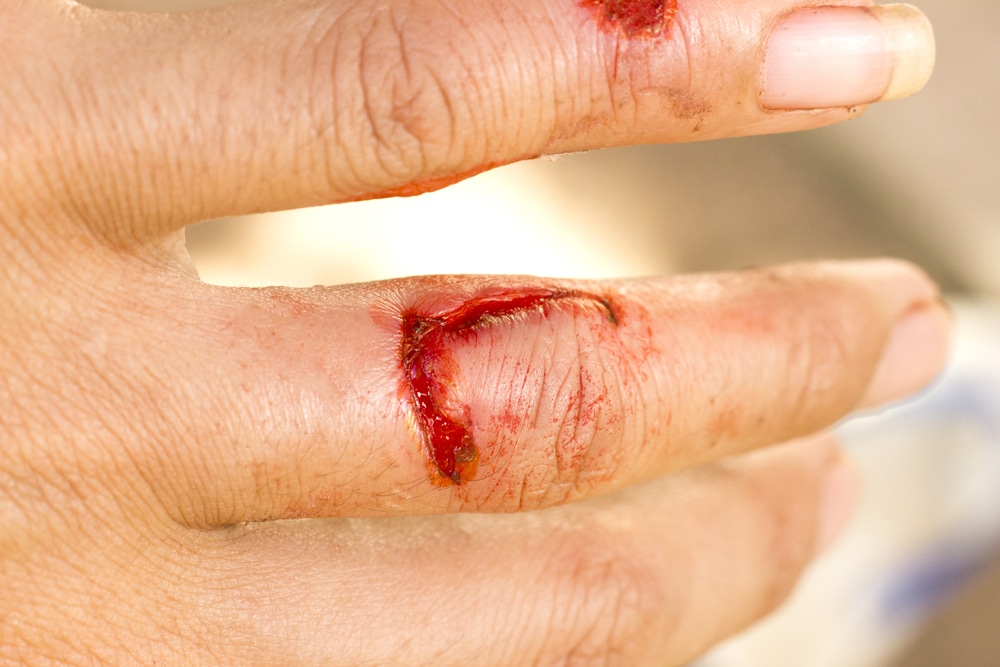Open wounds and Cuts
Superficial and minor injuries that do not bleed too much can usually be treated on your own. In first aid or traveling kits you will often find everything you need for wound care.
ATTENTION: Do you still have sufficient tetanus protection?
Even minor injuries can be entry points for tetanus pathogens or spores and should provide an opportunity for the attending physician to check the current tetanus vaccination protection. If necessary, tetanus immunoprophylaxis must be carried out immediately (Robert Koch Institute Epidemiological Bulletin No. 34).
Who needs a tetanus vaccination?
- If not yet fully vaccinated
- For small wounds if the last vaccination was more than 10 years ago
- For larger soiled wounds if the last vaccination was more than 5 years ago
Wound care tips
- Do not touch the wound with your fingers, wear disposable gloves
- Clean the wound, rinse thoroughly with lukewarm tap water (drinking water if possible!), if necessary help mechanically with sterile compresses.
- Disinfect the wound well: Apply a wound disinfectant immediately after cleaning the wound.
- Bandage wound. Sterile plasters or wound compresses for larger injuries.
- Observe the wound: The dressings should be changed daily. Does the wound heal well? You should keep this in mind and, if in doubt, seek medical advice immediately. Signs of an impending infection or healing disorders are: increasing pain, increasing swelling, increasing redness, increasing secretion (pus).
If in doubt, you should see a doctor, especially with:
- Deep, gaping wounds
- Wounds bleeding profusely
- Unexplained injuries of deeper structures
- Numbness around the wound/finger
- Involvement of bursae on elbows and knees (risk of infection)
- Foreign bodies stuck deeper in the wound (e.g. sea urchin injuries)
- Do not pull out deep-seated foreign objects/splinters! Leave that to the doctor. Pulling it out could bleed even more. Gently cover the injury with a sterile bandage and contact a doctor.

